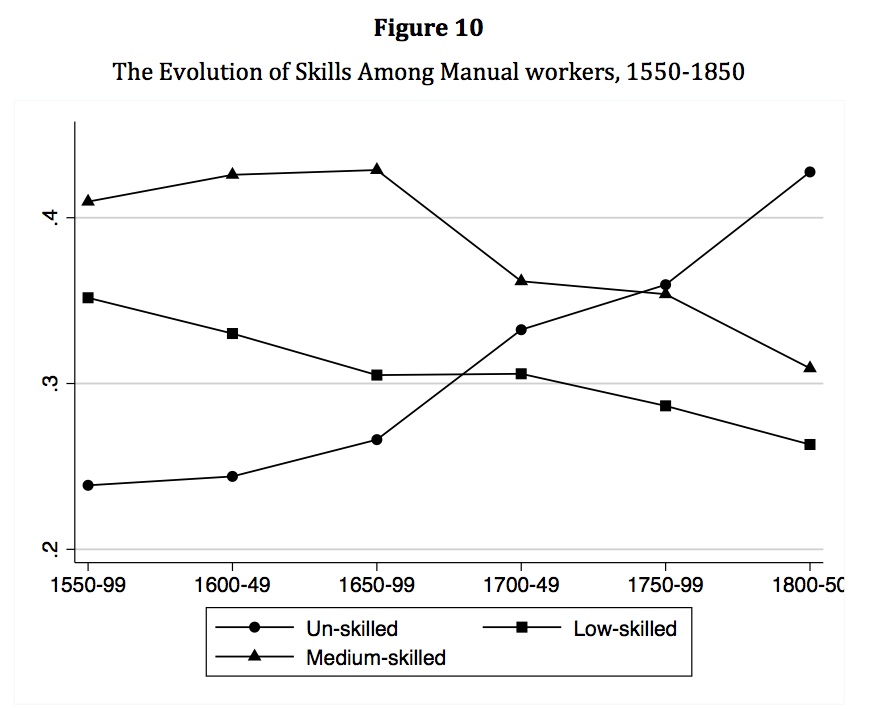From a paper de Pleijt and Weisdorf that looks at skill composition of the English workforce during industrialization:

Dietz Vollrath (I really like his blog) has a great discussion:
It’s a really interesting paper, and it’s neat to see how much information you can keep sucking out of these parish records from England. It leaves me with two big questions/ideas. First, does industrialization depend on a concentrated core of skills, rather than a broad distribution of skills? That is, if Mokyr is right about the source of English industrialization, then it’s those extra 650K high-skilled workers that really made all the difference. Industrialization didn’t involve spreading skills all around the (rapidly expanding) population, but in getting together a critical mass of skilled workers. Are we paying too much attention to average human capital levels when we talk about development and growth, and not enough to looking at when/how/if countries achieve that critical mass of skilled workers? Is the overall level of education irrelevant to industrialization?
Second, should we care about de-skilling? In a vacuum, telling someone that the share of unskilled workers in the economy rose from 25 to 40% of all workers would send up red flags. That must be a bad thing, right? Is it? As England added population, much of that new population was unskilled, presumably because there was no longer a demand for certain low- and medium- skilled professions that had been replaced by machines. Could this just mean that the economy was getting more efficient at using the human capital at hand? England didn’t need to waste all that time and effort skilling-up a big mass of workers. They could be used immediately, without much training.
My quick comments are (1) I agree, and (2) however fascinating, this probably has little relevance for patterns and consequences of industrialization today, so I wouldn’t try to glean insights for Ethiopia or Vietnam.
Will have more to say in a few weeks, when Stefan Dercon and I unveil the very unexpected results of our randomized trial of factory jobs in Ethiopia.

6 Responses
Read: Does industrialization de-skill workers? http://t.co/JmN589s9oI
Does industrialization de-skill workers?http://t.co/wBzaPB4AQ4 via @feedly
RT @cblatts: Does industrialization de-skill workers? http://t.co/lnrJsrVPcs
Does industrialization de-skill workers? http://t.co/pgGhgD19MN Maybe coming eventually to a Development class starting in 30 minutes
Does #industrialization de-skill #workers? @cblatts discusses a historical study, and teases his #Ethiopia #RCT. http://t.co/ODVDi7Wsro
Does industrialization de-skill workers? http://t.co/lnrJsrVPcs